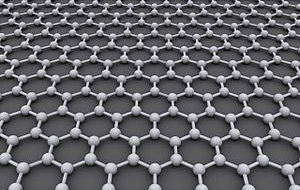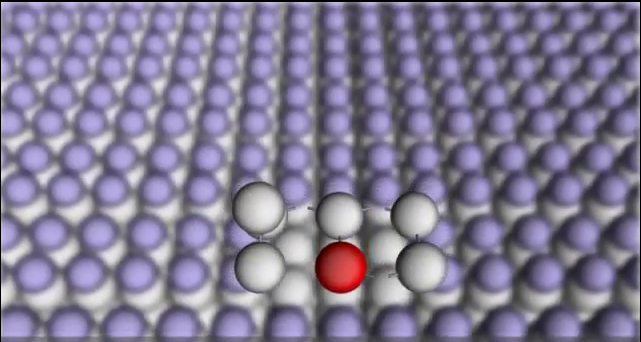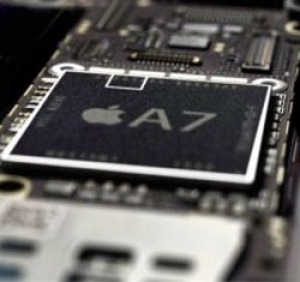From The Blog
-
ConnectWise Slash and Grab Flaw Once Again Shows the Value of Input Validation We talk to Huntress About its Impact
Written by Sean KalinichAlthough the news of the infamous ConnectWise flaw which allowed for the creation of admin accounts is a bit cold, it still is one that…Written on Tuesday, 19 March 2024 12:44 in Security Talk Read 698 times Read more...
-
Social Manipulation as a Service – When the Bots on Twitter get their Check marks
Written by Sean KalinichWhen I started DecryptedTech it was to counter all the crap marketing I saw from component makers. I wanted to prove people with a clean…Written on Monday, 04 March 2024 16:17 in Editorials Read 1576 times Read more...
-
To Release or not to Release a PoC or OST That is the Question
Written by Sean KalinichThere is (and always has been) a debate about the ethics and impact of the release of Proof-of-Concept Exploit for an identified vulnerability and Open-Source…Written on Monday, 26 February 2024 13:05 in Security Talk Read 1111 times Read more...
-
There was an Important Lesson Learned in the LockBit Takedown and it was Not About Threat Groups
Written by Sean KalinichIn what could be called a fantastic move, global law enforcement agencies attacked and took down LockBit’s infrastructure. The day of the event was filled…Written on Thursday, 22 February 2024 12:20 in Security Talk Read 1083 times Read more...
-
NetSPI’s Offensive Security Offering Leverages Subject Matter Experts to Enhance Pen Testing
Written by Sean KalinichBlack Hat 2023 Las Vegas. The term offensive security has always been an interesting one for me. On the surface is brings to mind reaching…Written on Tuesday, 12 September 2023 17:05 in Security Talk Read 2133 times Read more...
-
Black Kite Looks to Offer a Better View of Risk in a Rapidly Changing Threat Landscape
Written by Sean KalinichBlack Hat 2023 – Las Vegas. Risk is an interesting subject and has many different meanings to many different people. For the most part Risk…Written on Tuesday, 12 September 2023 14:56 in Security Talk Read 1854 times Read more...
-
Microsoft Finally Reveals how they Believe a Consumer Signing Key was Stollen
Written by Sean KalinichIn May of 2023 a few sensitive accounts reported to Microsoft that their environments appeared to be compromised. Due to the nature of these accounts,…Written on Thursday, 07 September 2023 14:40 in Security Talk Read 2124 times Read more...
-
Mandiant Releases a Detailed Look at the Campaign Targeting Barracuda Email Security Gateways, I Take a Look at What this all Might Mean
Written by Sean KalinichThe recent attack that leveraged a 0-Day vulnerability to compromise a number of Barracuda Email Security Gateway appliances (physical and virtual, but not cloud) was…Written on Wednesday, 30 August 2023 16:09 in Security Talk Read 2098 times Read more...
-
Threat Groups Return to Targeting Developers in Recent Software Supply Chain Attacks
Written by Sean KalinichThere is a topic of conversation that really needs to be talked about in the open. It is the danger of developer systems (personal and…Written on Wednesday, 30 August 2023 13:29 in Security Talk Read 1891 times Read more...
Recent Comments
- Sean, this is a fantastic review of a beautiful game. I do agree with you… Written by Jacob 2023-05-19 14:17:50 Jedi Survivor – The Quick, Dirty, and Limited Spoilers Review
- Great post. Very interesting read but is the reality we are currently facing. Written by JP 2023-05-03 02:33:53 The Dangers of AI; I Think I Have Seen this Movie Before
- I was wondering if you have tested the microphone audio frequency for the Asus HS-1000W? Written by Maciej 2020-12-18 14:09:33 Asus HS-1000W wireless headset impresses us in the lab
- Thanks for review. I appreciate hearing from a real pro as opposed to the blogger… Written by Keith 2019-06-18 04:22:36 The Red Hydrogen One, Possibly One of the Most “misunderstood” Phones Out
- Have yet to see the real impact but in the consumer segment, ryzen series are… Written by sushant 2018-12-23 10:12:12 AMD’s 11-year journey to relevance gets an epic finish.
Most Read
- Microsoft Fail - Start Button Back in Windows 8.1 But No Start Menu Written on Thursday, 30 May 2013 15:33 in News Be the first to comment! Read 116522 times Read more...
- We take a look at the NETGEAR ProSafe WNDAP360 Dual-Band Wireless Access Point Written on Saturday, 07 April 2012 00:17 in Pro Storage and Networking Be the first to comment! Read 87470 times Read more...
- Synology DS1512+ Five-Bay NAS Performance Review Written on Tuesday, 12 June 2012 20:31 in Pro Storage and Networking Be the first to comment! Read 82027 times Read more...
- Gigabyte G1.Sniper M3 Design And Feature Review Written on Sunday, 19 August 2012 22:35 in Enthusiast Motherboards Be the first to comment! Read 80335 times Read more...
- The Asus P8Z77-M Pro Brings Exceptional Performance and Value to the Lab Written on Monday, 23 April 2012 13:02 in Consumer Motherboards Be the first to comment! Read 70988 times Read more...
Displaying items by tag: silicon
Apple buys the most chips, or at least pays the most money for them...
Apple and Samsung were the world's largest buyers of chips last year among device manufacturers with total revenues exceeding one billion dollars according to data collected by the company IHS. Apple took the first spot with a total consumption of the chips in the amount of 30.3 billion dollars, while Samsung took second place with $20.2 billion spent on chips.
TSMC starts mass production of 20 nm chips
Taiwan's TSMC has begun mass production of 20-nanometer chips before the previously scheduled time. According to the company's vice president C. C. Wei, TSMC began the production of large quantities of chips in the above production process a month earlier than it was originally planned.
One More Hurdle Passed In The Race To Using Graphene In Processors.
 Two more pieces of the puzzle are falling into place with the move away from silicon in microprocessors. Silicon has been the mainstay for creating processors for… well for a very long time. However, it has its limitations as the need to make the transistors smaller continues to increase. Even if you are not a believer in More’s Law you still cannot get around the fact that processors (GPU CPU and “other”) are all growing more complex. This means that the number of components continues to grow and we are faced with a couple of choices; either die in the vacuum of space or… no wait that is someone else. The choices are actually very clear; make the processor dies larger and larger or shrink the manufacturing process.
Two more pieces of the puzzle are falling into place with the move away from silicon in microprocessors. Silicon has been the mainstay for creating processors for… well for a very long time. However, it has its limitations as the need to make the transistors smaller continues to increase. Even if you are not a believer in More’s Law you still cannot get around the fact that processors (GPU CPU and “other”) are all growing more complex. This means that the number of components continues to grow and we are faced with a couple of choices; either die in the vacuum of space or… no wait that is someone else. The choices are actually very clear; make the processor dies larger and larger or shrink the manufacturing process.
Intel Already Working on 14nm Process; How Will They Deal With Leakage?
 Intel is looking to the future even as their newest CPU, the 22nm Ivy Bridge, is taking something of a beating in the media. According to a few slides that have hit daylight Intel is already working on moving some of its FABs to 14nm in preparation for their next generation of CPUs. Of course this is not that big of a deal really, Intel has moved from one process to the next like clockwork (insert “Tick-Tock” joke here).
Intel is looking to the future even as their newest CPU, the 22nm Ivy Bridge, is taking something of a beating in the media. According to a few slides that have hit daylight Intel is already working on moving some of its FABs to 14nm in preparation for their next generation of CPUs. Of course this is not that big of a deal really, Intel has moved from one process to the next like clockwork (insert “Tick-Tock” joke here).
Researchers find a way to place a single atom transitor with atomic level precision
 If you are a fan of the Douglas Adams book, the Hitchhiker’s Guide to the Galaxy (and others in the five book trilogy) then you are familiar with the great super computer Deep Though and the computer that it built to provide the question to The Ultimate Answer of Life the Universe and Everything. This was a gigantic computer that was so big it was often mistaken for a planet. It also incorporated organic life in it design (If I have lost you here don’t worry I promise I am getting to the point soon). Now in the real world researchers have found a way to use naturally occurring atomic particles to form the basis for microprocessors.
If you are a fan of the Douglas Adams book, the Hitchhiker’s Guide to the Galaxy (and others in the five book trilogy) then you are familiar with the great super computer Deep Though and the computer that it built to provide the question to The Ultimate Answer of Life the Universe and Everything. This was a gigantic computer that was so big it was often mistaken for a planet. It also incorporated organic life in it design (If I have lost you here don’t worry I promise I am getting to the point soon). Now in the real world researchers have found a way to use naturally occurring atomic particles to form the basis for microprocessors.

